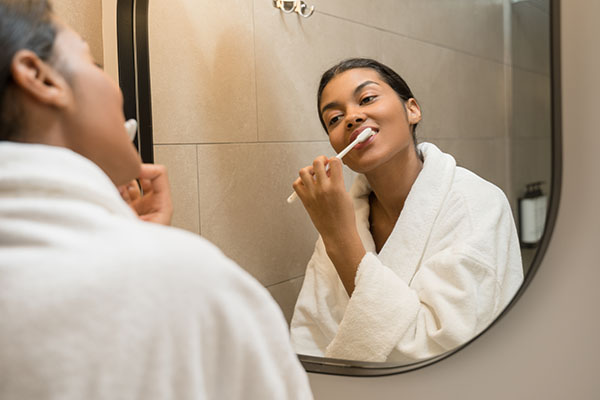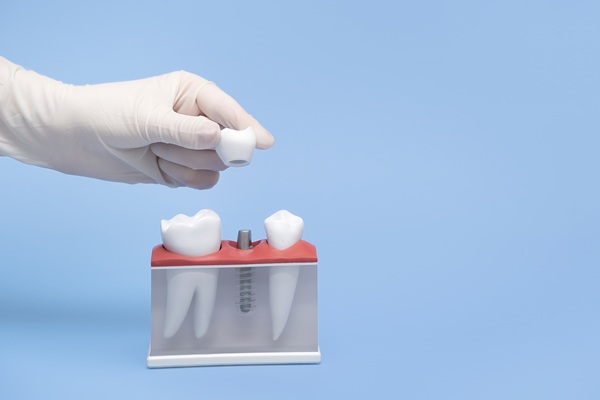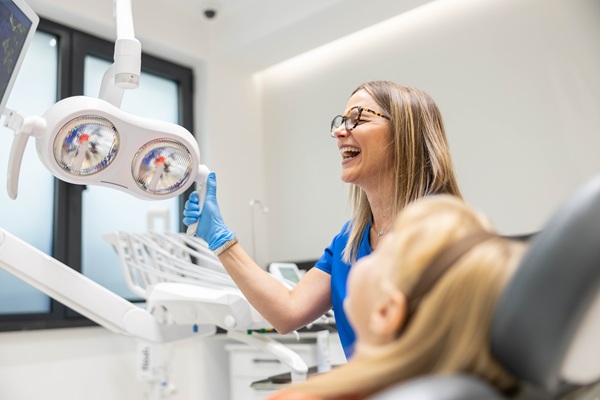 Consistent oral hygiene is essential for promoting strong oral health. While responsibly caring for your mouth deserves attention throughout the day, oral hygiene basics before sleep is essential in keeping your teeth and gums healthy over time.
Consistent oral hygiene is essential for promoting strong oral health. While responsibly caring for your mouth deserves attention throughout the day, oral hygiene basics before sleep is essential in keeping your teeth and gums healthy over time.
How to take care of your teeth before bed
Regularly practicing strong oral hygiene habits before bed can make a world of difference in the health of your mouth, over both the short and long term. Aside from promoting consistency in oral hygiene practices, brushing before bed is essential because the mouth tends to dry out while you sleep. This allows bacteria to more easily proliferate, which will harden into plaque on teeth. Brushing your teeth before sleeping can help to control this process.
Here are some things you should work to do every night to develop routines and ensure they stay consistent.
Brush and floss your teeth before going to sleep
This is one of the earliest aspects of oral hygiene basics that children learn, and for good reason: Consistently brushing and flossing before bed is one of the most effective ways to regularly practice good oral hygiene.
Brushing and flossing right before bed will ensure that no food is left in your mouth before going to sleep. This is especially true of flossing, which lets you reach difficult-to-find pieces of food that may be stuck between teeth, particularly in the back of your mouth.
Brushing your teeth with fluoride toothpaste for at least two minutes is a good rule of thumb. Using an electric toothbrush can be an added bonus in effectively managing oral health.
Use a mouth rinse before bed
For an added boost to oral health, consider using a mouthwash or rinse before bed. A rinse will help to remove bacteria from your mouth and can effectively help prevent cavities. It can also help remove food from hard-to-reach parts of your mouth, as well as work to provide fluoride treatment to those same difficult-to-reach areas.
Wear a mouthguard while you sleep
A night guard can be an extremely effective sleep aid in promoting strong oral health. Mouthguards protect against grinding and clenching teeth during sleep, which can lead to chipped or sensitive teeth, as well as a sore jaw or a jaw with limited mobility.
Generally, mouth guards are custom-made by a dentist and can be extremely valuable in ensuring that your teeth and jaw do not become damaged overnight.
Don’t eat late at night
Avoiding late-night snacks — particularly after brushing, flossing, and rinsing — will ensure your mouth stays clean before bed, also helping to prevent bacteria from proliferating in your mouth overnight.
Conclusion
Overall, sound oral hygiene basics before bed can make a major difference in the long-term health of your mouth. Employing these practices beginning at a young age can help to make these routines lifelong, protecting your mouth's health over time and helping you avoid unnecessary dental work. In short, a few minutes of attention every night will help ensure strong oral hygiene during the day.
Request an appointment or call Smiles Dental Care at 650-563-1180 for an appointment in our Mountain View office.
Recent Posts
When it comes to oral hygiene basics, you probably think that changing the foods that you consume can strengthen your teeth. However, drinks actually have a large impact on your teeth because the traces of particles stay behind long after you have finished drinking. Here are the drinks that you should avoid to maintain a…
Healthy teeth are a vital part of being able to eat and enjoy food, but certain foods can be more harmful to dental health than others. Learning about foods that help and hurt the teeth is an important part of oral hygiene basics that can be helpful in guiding the choices people make when caring…
Your teeth play a major role in your life. They help you eat and talk, and they complete your smile. Practicing oral hygiene basics will keep your teeth healthy so that they can serve you well for a lifetime.One of the most important aspects of dental hygiene is regular brushing. Do it twice a day.…


